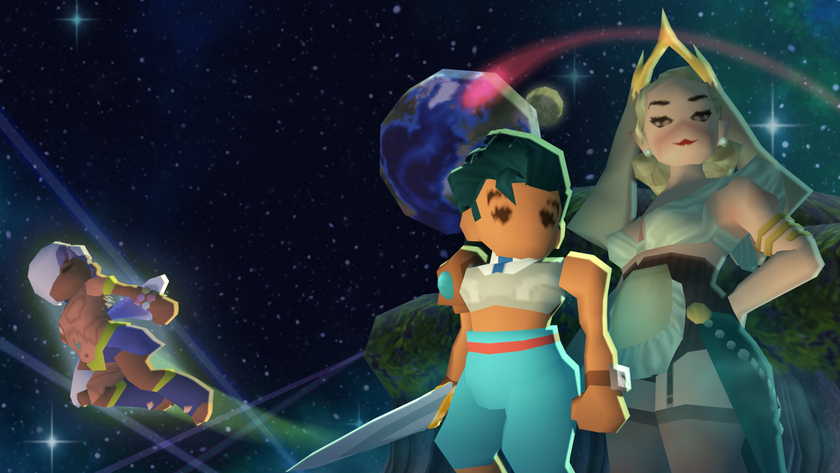D&D and back again: How two ex-BioWare directors are returning to their roots
Modern RPGs evolved from D&D, so why would two prominent BioWare developers go back to pen and paper with a new D&D adventure book?
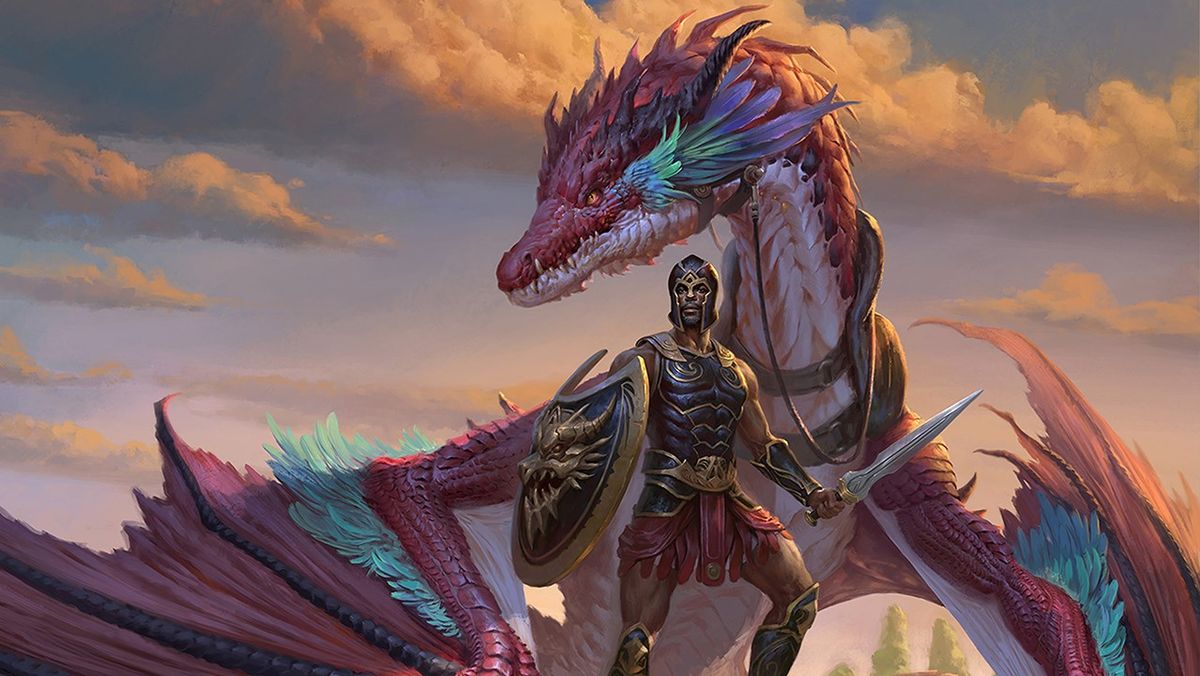
Pretty much anything with character progression, stat-driven combat, or even the term "experience points" can trace its lineage back to Dungeons & Dragons. Red Dead Redemption 2, Anthem, Sekiro, and even Apex Legends (with its ever-filling XP bars) all have the echoing clatter of twenty-sided dice deep in their history. For many who play these games, that's where those iconic icosahedrons should stay. Why go back to the old ways? For two senior developers who left one of the world's best-known video game studios, it was a matter of creative survival – and proving that returning to your inspiration doesn't mean regressing.
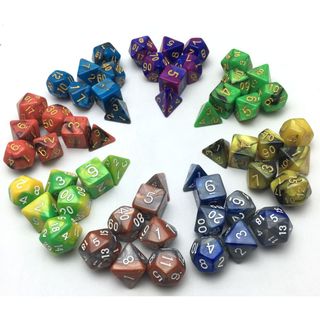
Find your own adventures in our list of the best tabletop roleplaying games.
James Ohlen was the lead designer on Baldur's Gate. It was technically BioWare's second project after Shattered Steel (a mech combat game), but Baldur's Gate was the first BioWare game. You know, with a detailed world, lots of dialogue, characters you love or at least enjoy hating, that kind of stuff. It could still be considered the consummate Dungeon & Dragons video game, and it couldn't have been a better first project for Ohlen given his particular background.
"When I was around 11 or 12 I was like the ultimate nerd, I didn't have any friends, my life was kind of shit," Ohlen admits as I speak with him over Skype. "And then I used Dungeons & Dragons to build up a network of friends and campaigns and clean myself up. Actually, all my lifelong friends come from that campaign in my teenage years. I was able to start up my comic book store because of the connections I made... and my career. I pretty much owe me life to Dungeons & Dragons"
Beyond being connected to the rules of D&D and the overarching fiction of its Forgotten Realms setting, Ohlen liberally lifted characters from his campaigns to use in Baldur's Gate and, later, Neverwinter Nights. If your virtual journey through Neverwinter crossed paths with Boddyknock the gnome sorcerer, then you've met Anthem executive producer Mark Darrah's pen-and-paper creation.
Jesse Sky, a lead designer and creative director on Star Wars: The Old Republic, had a similar path. "I didn't start with tabletop games playing D&D, I started with a Star Wars homebrew campaign I ran in college. So for me, working on The Old Republic was a natural extension of what I'd been doing. And actually, a lot of the stuff that made it into Knights of the Fallen Empire was from my homebrew campaign in college."
Burning out, moving on

Ohlen and Sky's experience behind the game master's screen powered their early days at BioWare in ways beyond direct material inspiration. Sky said dungeon design, in particular, requires similar sensibilities, regardless of whether you're working on a video game or a pen and paper one. Sometimes it's even more literal than that.
"I have always applied the way I approached Dungeons & Dragons to all the games. And yes, even famously Knights of the Old Republic uses the stat and level system [from D&D]," Ohlen pauses, laughing. "That was not a conscious creative choice, that was a choice that I had to make because KOTOR was based on the Neverwinter Nights engine, which had all the D&D rules working perfectly. Pathfinding and AI and all the rest was integrated with the D&D system, and it was much easier to go, 'Hey, let's just use D&D, and we'll create a story about how it's so perfect for Star Wars, even though it's not'. We all know that it's not."
Sign up to the 12DOVE Newsletter
Weekly digests, tales from the communities you love, and more
"But I remember promoting Knights of the Old Republic, and you can't promote a game by saying, 'Yeah, we picked it because it was the easiest and cheapest thing to do in order to get this game out'. Knights of the Old Republic had enough complexities without adding in a total reset of AI and pathfinding and all of the rest of the stuff. So!"
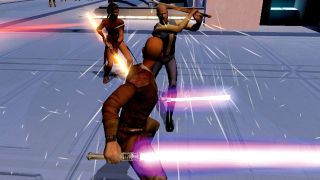
Maybe KOTOR would have been even more of a classic if Ohlen's team had started from scratch in designing systems, or maybe it would have run out of resources and been abandoned. As Ohlen's position at BioWare towered higher on top of ever-growing teams, he noticed he was making fewer interesting choices like that. More bureaucracy, less telling stories and making worlds. Sky had similar feelings, and he ended up quitting his position at BioWare Austin before Ohlen did, "looking to reset" after eight years in the industry.
"I was reading The Argonautica and The Odyssey. You look back at the Greek heroes, they're pretty much murder hobos."
Perhaps hoping to keep Ohlen from jumping ship as several other BioWare higher-ups had done in recent years, EA allowed him to start up a side project. It didn't quite work out in terms of keeping Ohlen satisfied – it became all he wanted to work on. That was Odyssey of the Dragonlords. It was also the reason he left BioWare in 2018 after 22 years, linked back up with Sky from the BioWare Austin team, and formed their new independent RPG studio, Arcanum Worlds.
I'll give you the cliff notes if you don't have time for a proper lore introduction (though there is a lovely one by Mass Effect lead writer Drew Karpyshyn). Odyssey of the Dragonlords is mythological Greece by way of swords and sorcery, and an adventure book with a new setting for D&D (or other systems with some light rule conversions). Now if you're already the proud owner of a well-used Monster Manual, you probably know the creators of D&D have themselves dipped into Hellenism for source material: centaurs, cyclopes, medusae, harpies and many more mythical creatures have challenged brave adventurers from the very beginning.
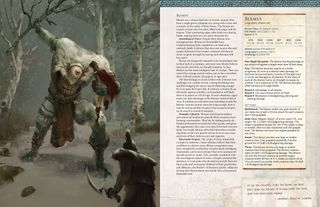
But familiar monsters are just one part of the Greek legends. Odyssey means to explore them on a more thematic level (while still giving adventurers ample opportunity to battle strange beasts). In so doing it may even finally bring narrative justification to the long-debated matter of "murder hobos": a pejorative term for D&D parties that set off with grand quests in mind and end up just wandering around the world, killing and looting any villains they happen to find.
"I was thinking about that, and I was reading The Argonautica and The Odyssey. You look back at the Greek heroes, they're pretty much murder hobos," Sky explains. "They just go around killing things and revel in the glory and take treasure. Heroism used to mean something different than it means now. And I think that's what got us thinking about mythological Greece as a setting. What if we embraced that idea and said now you're playing a hero more like Jason, as opposed to a hero like Aragorn? You're not compelled to do good, you're just compelled to seek glory and follow oaths that you've sworn. We just thought that was interesting."
Look in the free player's handbook and see for yourself: one section lays out all kinds of fun curses you could get for, say, robbing a grave or failing to treat a guest with grace and hospitality; another section lets you start your adventure on an Epic Path with all of the mighty powers and weighty obligations that come with being a mortal touched by the gods. The full book will follow with even more, and a Kickstarter campaign could give you the chance to own a copy in hardcover (Ohlen admitted that this is partly because he's always wanted to put a book he wrote on his bookshelf).
A change of role
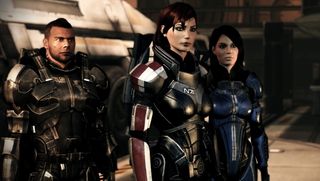
Ohlen admitted he would like to return to working on video games at some point (Sky seemed less taken by the idea, but you never can tell). So in the interview, I proposed a hypothetical compromise: If an Electronics Arts lawyer came to your door and offered to give you the exclusive rights to make a tabletop roleplaying game based on an original BioWare property, which one would you pick?
"I would probably choose Mass Effect for myself," Sky quickly responds. "Mass Effect 2 is just one of the greatest games of all time. Actually, after I played that game, I did consider running a campaign set in that world. Is there someone else who is already doing a Mass Effect roleplaying game?"
Not officially, though there are several fan-made versions. As someone else who would love to page through an official Mass Effect RPG, I take the opportunity to ask if either Sky or Ohlen had any inside perspective on why it still hasn't happened. Sky's answer was, unsurprisingly, "licensing is complicated, I'm not sure."
Then Ohlen jokes about asking BioWare general manager Casey Hudson if they could do a Mass Effect book. I tell him I would so buy that, it isn't even funny how much I would buy that. "If we ever end up doing a Mass Effect book, you'll know that it came from this discussion," Ohlen concedes. Satisfied, I ask him what BioWare game he'd choose to fashion into his very own tabletop roleplaying game.
"Dragon Age was my world," Ohlen answers after taking a little more time to think. "It was me and Dave Gaider who built that world at the start. I have a lot of personal love for that campaign setting. Now the guys at BioWare have expanded it into something much less generic than the original Origins version of the world, but I love what they've done. I think it would be really cool to do something in the Dragon Age universe again. I haven't worked on it in so long, so returning to that would be cool."
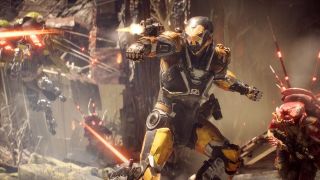
If you're interested, one such official Dragon Age RPG does exist. It's a well-made system that recreates the dangerous feel and powderkeg politics of Thedas, but I'd still be delighted to see what Ohlen could do with the universe he helped create. Then, though we'd stayed away from the topic of Anthem at Ohlen and Sky's request, Ohlen suggested that it would also "be cool to work in the Anthem universe because it is very much something new and different from everything else out there." You never know. Maybe Anthem's path past its rough launch could include a killer RPG source book?
"I want to return to the video game industry at some point, but I think I'm now at a point in my career where I just want to do things that I love."
Hypothetical dream deals aside, that's the foreseeable future for Arcanum Worlds: making books for D&D (and maybe other popular role-playing systems), laying out their talents on ink and paper and selling the product to eager game masters. It keeps them close to the creative spark that got them started as dungeon masters, then led them to the upper ranks of a renowned video game studio – the spark that burned a hole in their patience for being relatively tiny parts of a story-making machine.
"I think it was just time for me to leave and do stuff that I was more passionate about," Ohlen says. "I want to return to the video game industry at some point, but I think I'm now at a point in my career where I just want to do things that I love. And I loved working on Baldur's Gate, the Baldur's Gate franchise, Star Wars with Knights of the Old Republic, creating a fantasy world in Dragon Age. That's all a long time ago now!"
I got a BA in journalism from Central Michigan University - though the best education I received there was from CM Life, its student-run newspaper. Long before that, I started pursuing my degree in video games by bugging my older brother to let me play Zelda on the Super Nintendo. I've previously been a news intern for GameSpot, a news writer for CVG, and now I'm a staff writer here at GamesRadar.
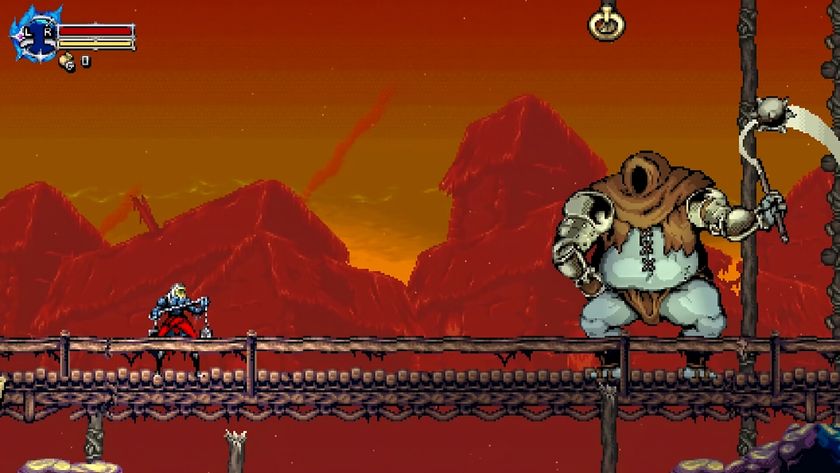
And you thought Hollow Knight: Silksong is late – 37 years in the making, this retro Metroidvania has a whip-smart Steam Next Fest demo that's as Castlevania as it gets
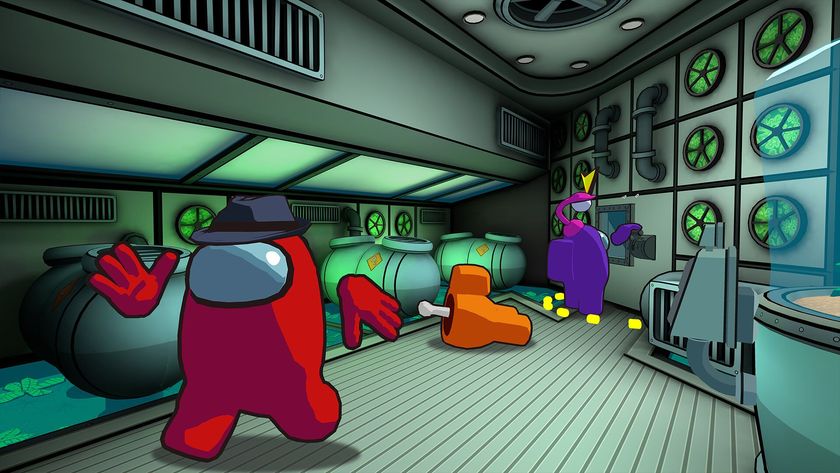
Among Us is popping off all over again thanks to a 3D version of the viral hit that's climbing up Steam Next Fest's charts
Most Popular



